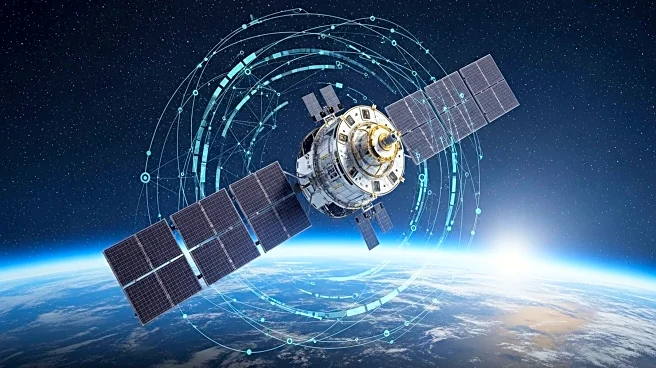What is the story about?
What's Happening?
Argentina's space industry is experiencing significant growth, marked by the development of private NewSpace ventures and international collaborations. The National Space Activities Commission (CONAE) has launched multiple Earth observation satellites, including the SAOCOM radar satellites, in partnership with Italy. State-owned ARSAT operates communication satellites, with plans to launch the high-throughput broadband satellite ARSAT-SG1 by 2025. Private companies like Satellogic are pioneering low-cost Earth-imaging microsatellites, contributing to a diversified space ecosystem. Argentina's strategic collaborations with NASA, ESA, and other international partners enhance its capabilities and integration into global exploration efforts.
Why It's Important?
Argentina's advancements in space technology have significant implications for its economy and international standing. The growth of its space industry supports scientific research, environmental monitoring, and telecommunications, benefiting sectors like agriculture and disaster management. International partnerships bolster Argentina's technological capabilities and foster economic opportunities through satellite services and data exports. The expansion of Argentina's space industry positions it as a key player in Latin America's space sector, contributing to regional development and global scientific initiatives.
What's Next?
Argentina plans to continue developing its space infrastructure, including the second-generation SAOCOM radar satellites and indigenous launch capabilities through the Tronador program. Despite economic challenges, the country aims to maintain its long-term space plan to 2030, focusing on new satellite constellations and global collaborations. Sustained investment and public-private support are crucial for Argentina to achieve its space ambitions and capitalize on growing demand for satellite services.
Beyond the Headlines
Argentina's space industry reflects broader trends in international cooperation and technological innovation. The country's ability to balance partnerships with both Western and Eastern space agencies demonstrates its strategic approach to leveraging global expertise. The integration of space technology into domestic applications highlights the transformative impact of satellites on societal challenges, such as bridging the digital divide and enhancing environmental sustainability.
















